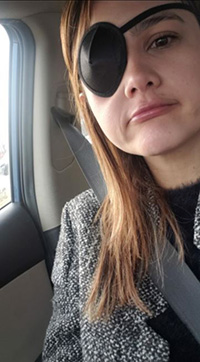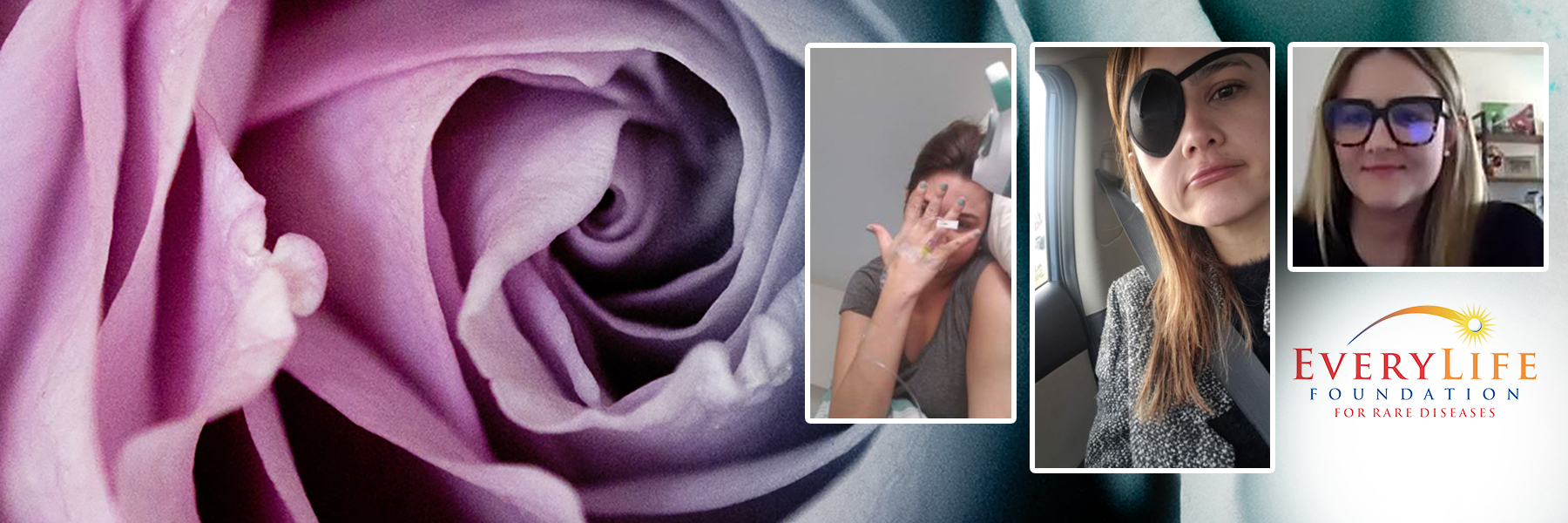Four years ago, Brenda Colmenares was living in Miami and working in marketing in the food and beverage industry. Her first sign that something was wrong with her health was when she started experiencing double vision.

One opthamologist couldn’t diagnose her with anything specific. Another prescribed prism glasses. She ended up with an eye patch.
Brenda started to get scared when she had trouble swallowing. Choking on food one day became a terrifying emergency. At the ER, a doctor diagnosed her with MG.
Like many MG patients, she had never heard of the disease and had no idea what it was or what to expect. She accepted the treatment plan recommended by the doctor – take prednisone, a steroid commonly used to counteract inflammation. Within 10 days, Brenda’s double vision went away and she felt more energized. But not long after, she began to feel the side effects — loss of appetite, swelling, and hair loss, among others.
She also started IVIg infusions, a common therapy in autoimmune disorders that restores some antibodies to a patient’s blood.
She describes this battle with medication side effects as “the worst part” of her MG experience.
“I had to wear a port in my hand five days a month. I was also still on prednisone. I felt okay with MG, but I had a million more symptoms with prednisone. So I found my answer on Facebook.”
Again, like many MG patients, Brenda turned to rare disease communities online to get advice and share experiences.
“I saw how many people had the same symptoms, who had amazing tips. I feel like Facebook saved my life.”
Brenda has MuSK-associated MG, a rarer type of this already rare disease. Through her support groups, she found other MuSK-MG patients who were taking rituximab, a monoclonal antibody treatment that has shown promising results in these patients and can reduce the need for steroids. This treatment has helped Brenda and reduced the number of bad side effects she’s experiencing.
 She’s grateful for online communities that provide spaces for shared understanding and healing.
She’s grateful for online communities that provide spaces for shared understanding and healing.
“Having a rare disease is super isolating. You never know who you can help by just sharing part of your story.”
A Path to Advocacy
Seeking a life change, Brenda moved from Miami to Washington D.C. She found out about a job in her field at EveryLife Foundation for Rare Diseases, a nonprofit that’s an important partner of MGFA in advocacy and awareness activities around MG. It seemed like a calling — the chance to put her marketing and communications talents to use for others who also battle rare, challenging, and complex diseases.
Now she supports efforts like Rare Disease Week, where advocates – new and experienced – from across the country come together, meet other advocates, share their stories with members of Congress, make change and impact public policy. The next Rare Disease Week takes place in late February 2023, tentatively in person in Washington, D.C.
“A lot of progress has been made, but still there is so much that people can do,” she says. “Whether it’s seeing a bit of progress with your disease or being able to make an impact by taking action, it’s very rewarding.”

